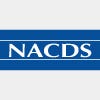By: Steven C. Anderson, IOM, CAE, President and CEO, National Association of Chain Drug Stores
Addressing surprise medical bills has emerged as a focal point of healthcare discussions on Capitol Hill. That is with good reason, as such bills can devastate patients and their families. However, pharmacy DIR fees (direct and indirect remuneration fees) could qualify as surprise bills of a different kind.
Put simply, pharmacy DIR fees result from a regulatory loophole. Payers claw back reimbursement paid to pharmacies for Medicare prescriptions. They claim these fees are based on quality performance, yet these metrics lack transparency, vary widely, and often do not reflect areas under pharmacy’s control.
Patients would be surprised to learn that pharmacy DIR fees are needlessly inflating their out-of-pocket prescription drug costs at the pharmacy counter. The Centers for Medicare & Medicaid Services (CMS) has estimated that reforming pharmacy DIR fees would save patients $7.1 to $9.2 billion in reduced cost sharing over 10 years.
Pharmacies themselves are victims of surprise bills because of DIR fees. Again citing CMS, DIR fees have exploded by 45,000 percent between 2010 and 2017 — a statistic that will be made even worse when 2018 figures are included. The bills are surprising in that they can arrive more than half-a-year after a pharmacy filled a prescription under Medicare, in that they can result in below-cost pharmacy reimbursement, and in that they are based on inappropriate and erratic metrics.
Medicare faces surprise bills from DIR fees as well. Higher out-of-pocket costs are associated with patients not taking their medications as prescribed, which diminishes health and leads to more costly forms of care down the road. One January 2019 study found that if 25 percent of hypertension patients started taking their medications, Medicare could save almost $14 billion. That is a result of 100,000 fewer emergency room visits and 7 million fewer inpatient hospital days.
Surprise bills can be found in surprising places. Just ask pharmacies. For the benefit of patients, for the good of Medicare, and for the survival of pharmacies, it is critical right now to provide DIR fee relief and to work toward pharmacy-specific metrics. This needs to happen in a drug-pricing bill that is enacted this year, or through Executive Branch action.
